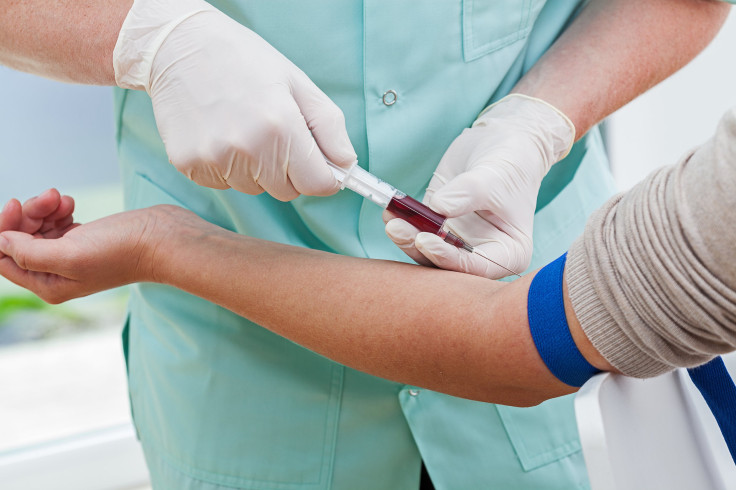Liquid Biopsies And Blood Tests That Can Detect Cancer May Revolutionize Cancer Treatment

Today, cancer screening largely relies on invasive procedures like removing tissue samples or colonoscopies. But a new type of cancer screening — known as the liquid biopsy — is becoming more and more widespread in the medical world.
The test shows huge promise in early detection of different types of cancer. “Had this test not been available, we may not have known I had cancer on my spine until symptoms showed up,” Carole Linderman, a breast cancer patient, told The Associated Press.
Liquid biopsies are essentially blood tests that are able to detect cancer cells or DNA shed from tumors in the blood. Instead of removing pieces of tissue from the tumor itself, doctors are able to simply draw blood from the patient and identify whether cancer is spreading to other parts of the body. It’s a noninvasive procedure that medical experts believe has the potential to transform cancer treatment — and to bring us closer to the ultimate goal of early detection, which can save millions of lives down the road.
These tests offer hope because they can provide a greater, more detailed view of how the cancer works and how it’s spreading through the body — and offer a multi-faceted portrait of the disease, whereas tissue samples only give doctors a localized picture. In a 2014 study led by Dr. Luis Diaz of Johns Hopkins University School of Medicine, researchers used liquid biopsies in the lab to identify tumors at an early stage, then continue monitoring them for metastasis, as well as identifying whether they would resist cancer treatments.
“We reasoned that tissue biopsies would only offer a snapshot of the overall tumor mass and might therefore be ill suited to capture the multiclonal feature of the resistant disease,” the authors wrote. Liquid biopsies are therefore “more likely to capture the overall genetic complexity of tumors in patients with advanced disease.”
Another recent study found that a blood test could be effective in screening for ovarian cancer. Researchers have tested the blood test successfully for lung cancer and prostate cancer patients.
Making Liquid Biopsies Mainstream
However, since not enough has yet been done to fully understand the accuracy of these tests, they’re currently only used when a tissue biopsy can’t easily be done, or when the cancer’s original starting point isn’t known. The only obstacle holding back doctors who are already applying the blood test is simply the fact that not enough large-scale studies have been completed to review the tests’ efficacy. Not much is yet known on how these blood tests work, which ones are best to use, and how accurately they can predict cancer and its spreading.
If these liquid biopsies are further researched and are shown to be effective across the board, doctors may one day develop an annual blood test to discover cancer in its early stages. Early detection, after all, is something like “the Holy Grail of cancer research,” Diaz said.
And as Eric Topol, a professor of genomics at the Scripps Research Institute notes, liquid biopsies may soon become the “stethoscope for the next 200 years.”
Testing the liquid biopsy for #cancer outcomes, a step forward for the molecular stethoscope http://t.co/FUeNQZ0EAv pic.twitter.com/3YmTw1NMCq
- Eric Topol (@EricTopol) April 19, 2015Published by Medicaldaily.com



























